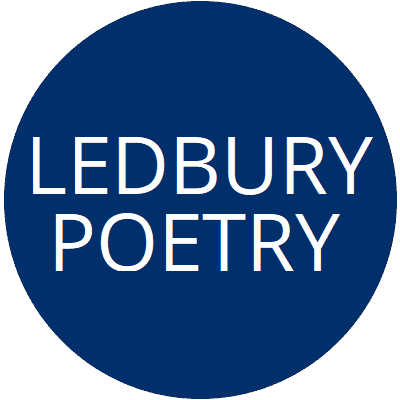An invigorating start to the final weekend of Ledbury Poetry Festival 2024, the ‘Poet Encounters’ event between Paul Muldoon and Imtiaz Dharker captivated the audience. Muldoon, a Northern Irish poet and this year’s Poet in Residence at the festival, and Dharker, a Pakistan-born Scottish poet and winner of the Queen’s Gold Medal for Poetry in 2014, brought their unique voices and styles to the stage.
The event was hosted by Neil Astley, editor at Bloodaxe Books, who introduced both poets as “leading double lives.” For Dharker, this refers to her being an artist as well as a poet; she illustrates her own poems and is a documentary filmmaker. Muldoon’s “double life,” meanwhile, pertains to the dual impulses driving his work: the Northern Irish Catholic sensibility and the English poetic tradition.
Paul Muldoon was described by Astley as “known for being a rather mischievous poet,” an allegation soon legitimized as Muldoon began reading. In ‘The Rain,’ Muldoon uses whimsical metaphor and allusions, following on from one another in what is, at times, a near-nonsensical way: “the rain would seem to palm you off / with the overflowing train / of a wedding gown and the unbleached coif // worn by Joan of Arc / under a steel casque.” The assertion that “A swarm / of bees so loves a photo op” perfectly encapsulates Muldoon’s playful tone. However, in his final personification of rain as “a cloud [transforming] // itself into a woman,” Muldoon’s language becomes breathtakingly beautiful: “the woman now dismounting her dapple-grey / in the dawn-dark, // consoling it with a snort of grain / and leading it to an overflowing trough / just moments after you offered your hand to the rain / and she seemed to palm you off.”
Imtiaz Dharker, on the other hand, shared poems of a much more solemn, though no less captivating, subject matter. The world-building of Dharker’s poetry is truly spellbinding. The immediacy and immersivity of her writing allow the reader to visualize the events she describes unfolding all around them. In ‘Swiping Left on Larkin,’ Dharker details “the sputtering streets / of a town caught in the act of drowning.” There is “a flurry of letters blown into gutters, / the glitter of language on cobbles,” alongside the conviction that “At the end of the world there is always / the sea and its breathing.” In ‘The Trick,’ a sonnet Dharker wrote following the death of her husband, she pleads, “Let me keep / the scent, the weight, the bright of you.” In her dreams, he returns to her: “Greedy for more / than the gift of seeing you, I lean in to taste / […] your offered mouth.” The poem ends with the heartbreaking confession that, “For this, for this, I fall asleep in haste, / willing to fall for the trick that tells the truth / that even your shade makes darkest absence bright, / that shadows live wherever there is light.”
After each poet finished their readings, the ‘encounter’ began, with Astley asking them both questions. Describing her creative process, Dharker revealed that her poetry is “a poetry of images”; she walks around with unlined paper so that, when struck by inspiration, what she produces “might become a poem or a drawing.” Similarly, Muldoon’s poems “creep up on [him].” Both writers also spoke on the importance of “baton-receiving and -passing” amongst poets; by sharing the work of new or undiscovered poets with others, and recommending them to publishing professionals like Astley, not only do poets amplify worthy voices, but they also foster a sense of community and mutual support.
As part of their conversation, the poets each read two poems from other writers. Muldoon read two poems by Scott McKendry, a fellow Northern Irish poet, while Dharker shared a poem each by Lena Khalaf Tuffaha and an unidentified poet whose name could not be made out.
Watching the two poets converse with and react to one another, the respect they felt for each other was evident. Their interaction highlighted the shared passion for poetry and the creative process, as well as their commitment to uplifting other voices in the literary community.
The event concluded with a rich discussion that left the audience with much to ponder about the power of poetry and its evolving role in our lives. The respect and camaraderie between Muldoon and Dharker made for a memorable and thought-provoking encounter, underscoring the vitality and diversity of contemporary poetry.
ABOUT THE REVIEWER
Charlotte Ainsworth
Charlotte Ainsworth is an English student excited to explore the world of reviewing literature. Her current interests include the work of female science fiction writers from the 20th century and earlier. Aside from her literary pursuits, Charlotte enjoys walking her dogs, embroidery and playing the trumpet.
